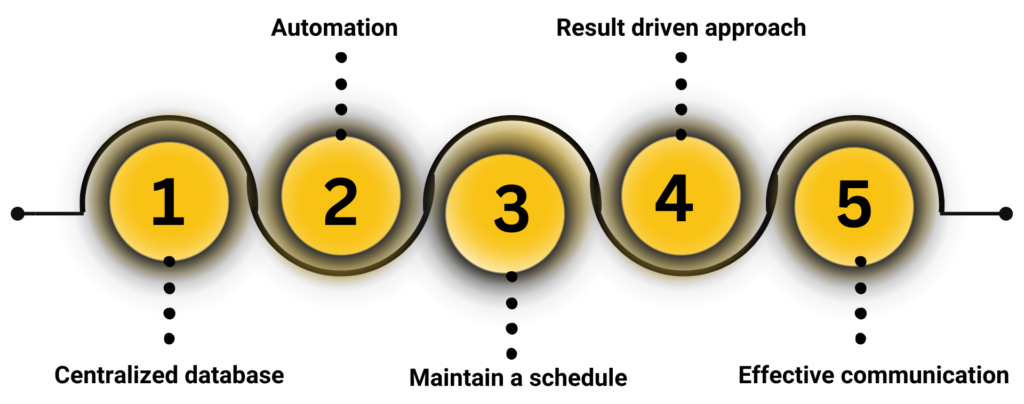Recently, the real estate sector suffered significant losses, and the pandemic made matters worse. However, things are steadily improving. The company strategy needs to be flexible and adaptable to meet the new difficulties that are coming. The most effective approach to advance is to use innovative technology like Salesforce CRM. While handling a single property, real estate brokers must deal with numerous issues. One slip-up can ruin the whole deal. Some of these tasks are handled by Salesforce CRM, including optimizing the entire process, building a database with client’s needs, making an efficient schedule, and so on
Challenges faced by Real Estate Industries
Due to the following factors, real estate firms often experience problems with their conversion rates, customer retention, and workload.
- Insufficient analytics to understand potential customers
- Customers want services that are more quickly delivered and personalized.
- There was no end-to-end visibility while tracking the work process or the inquiry status.
- Data that was not saved and processed in one location was not verified
- Lack of streamlining in communication
Benefits of Salesforce CRM in the Real Estate Industry

In the real estate sector, Salesforce CRM is vital for overcoming various challenges. Some of the benefits are listed here.
- Centralized database – A real estate firm must organize information because it deals with a lot of data, including lists of available properties, potential sellers and their specifications, and legal documents. The maintenance of a central database is essential. Salesforce offers a central repository that aggregates data from numerous sources and displays it to users in a single dashboard. All the information and operational data produced by the systems will be on the dashboard. As a result, agents will be able to communicate with one another more efficiently.
- Automation – Salesforce enables automation for a variety of real estate processes, enabling it to do away with several worker’s tasks. customers will find it simple to obtain necessary information, and complete critical forms, and documents with Salesforce CRM. Additionally, the system handles contacting clients, tracking dates, and sending out reminders, enhancing your relationship with them.
- Maintain a schedule – Salesforce will assist in maintaining a schedule and receiving reliable reminders. The CRM may combine leads from many channels into a single destination and will design a program according to the needs.
- Result-driven approach – CRM is designed to monitor and assess in real-time the efficiency of the processes. This quickness enables the business to drop the strategies that are ineffective and concentrate on the ones that are. A specialized CRM like Salesforce can help to save time, money, and effort while directing them where they will be most useful.
- Effective communication – Communication between agents and clients is the most crucial criterion for a real estate business. If there is poor customer interaction and communication, the real estate company will suffer missed opportunities and business losses. Using the different communication channels that Salesforce’s CRM offers will enable agents and users to communicate with convenience.
The real estate sector faces several difficulties that can be addressed by using Salesforce CRM for real estate technology solutions. In the real estate industry, CRM is not a new thought. However, autonomous, cloud-based CRM can change the market by allowing realtors to monitor and interact with information in real-time. CRM for realtors will be well ahead of the curve in managing customer relations as a result.


